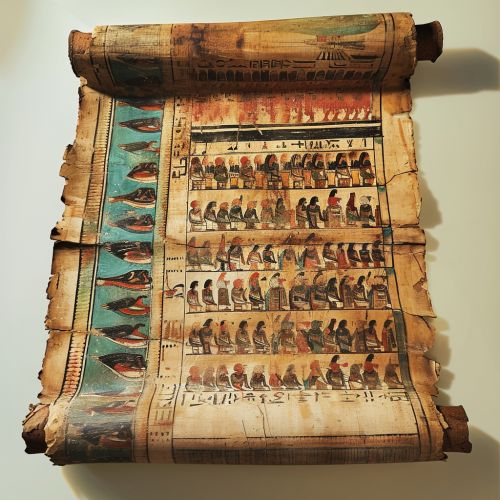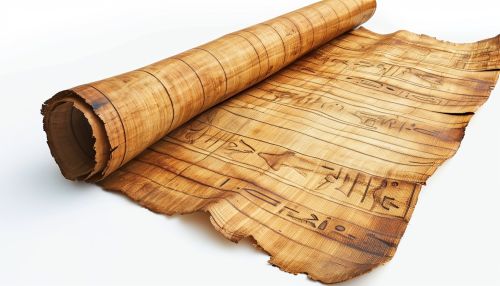Book of the Dead
Origins and Development
The Ancient Egyptian "Book of the Dead" is a collection of funerary texts consisting of spells, prayers, and incantations intended to assist a deceased person's journey through the underworld, and into the afterlife. The texts were initially inscribed on tomb walls and sarcophagi during the Old Kingdom (c. 2686–2181 BCE). However, with the advent of the New Kingdom (c. 1550–1077 BCE), they were written on papyrus and placed in tombs as part of the deceased's burial goods.


Content and Structure
The Book of the Dead is not a single, unified text, but rather an assemblage of individual chapters. Each chapter contains a specific spell or prayer and is self-contained, allowing for considerable flexibility in the arrangement of the chapters. The number and order of these spells can vary between different copies of the text, reflecting the personal preferences of the individual or family who commissioned the papyrus.
Spells and Incantations
The spells and incantations found within the Book of the Dead serve a variety of purposes. Some offer protection to the deceased, warding off potential threats from hostile entities or dangerous creatures within the underworld. Others provide the deceased with the necessary knowledge and abilities to overcome the challenges and trials they would encounter in their journey, such as the ability to breathe, move, and speak in the afterlife.
The Weighing of the Heart
One of the most significant spells within the Book of the Dead is Spell 125, which describes the "Weighing of the Heart" ceremony. In this ritual, the heart of the deceased is weighed against the feather of Ma'at, the ancient Egyptian concept of truth and order. If the heart is found to be lighter or equal in weight to the feather, the deceased is deemed to have led a righteous life and is granted access to the afterlife.
Cultural Significance
The Book of the Dead played a significant role in the religious and cultural life of ancient Egypt. It reflects the complex beliefs and rituals associated with death and the afterlife in ancient Egyptian society, providing valuable insights into their understanding of morality, the human soul, and the cosmos.
